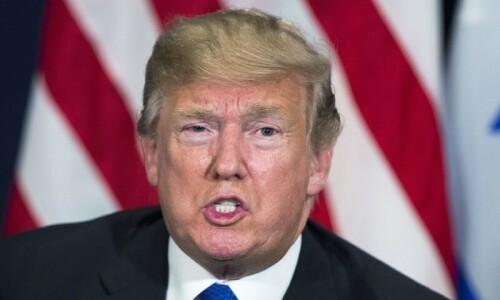 |
| SANJAY Rajoura, Varun Grover and Rahul Ram of Aisi Taisi Democracy, a three-person stand-up comedy act based in India. |
I’D almost given up on stand-up comedy, to be honest. The first couple of shows I went to, while at graduate school in New York City, largely passed over my head. I’d like to think the reason wasn’t that I have no sense of humour, but that the humour was firmly rooted in the specific culture and politics of mid-2000s America — and I wasn’t.
When I returned to India, it seemed that stand-up was beginning to be a thing here, too. So I gave it another try. But the comics I heard in Delhi, circa 2007-08, seemed neither sharp nor funny. They had precisely the opposite problem from the Americans I’d heard before — they weren’t rooted enough in contemporary India.
Aisi Taisi Democracy (ATD) doesn’t have that problem. A three-person act made up of Sanjay Rajoura, Varun Grover and Rahul Ram, ATD’s brand of often caustic, unabashedly political humour, delivered in a linguistic mix that is 80 per cent Hindi/Hindustani and maybe 20pc English, is anything but derivative. Rajoura, 42, lives in Delhi and is a full-time comic. Grover, 35, is based in Bombay, where he used to write for television and now does lyrics and scripts for films. Ram, well-known as the lead vocalist and bass guitarist of the band Indian Ocean, came on board last year, when Rajoura and Grover had agreed to combine their acts. “Because Rahul Ram agreed, we had to become more organised. We had a big musician now, so we had to give the show due respect,” Grover told me, characteristically poker-faced. The trio first performed together in Gurgaon last July, and has now done 12 shows across India, playing to full houses everywhere.
Nandini Nair, writing in The Caravan in 2010, pointed out that the Indian-American stand-up comedy scene was dogged by “[j]okes about ‘cheap’ parents, rebirth, recycling, computers, mispronounced names, Indian male ugliness, Indian female beauty, and traffic at home”, highlighting “the homogeneity of the group”. There is indeed a thin line between an appeal to familiarity and a rehashing of stereotype. Humour must be site-specific, and certainly ATD represents a particular subset of urban India. There are references to the Mumbai metro and TGIF; there are swipes at Facebook posts about Father’s Day.
Both Rajoura and Grover, however, bring with them a richness of experience that refuses some flattened idea of the Indian metropolis as unconnected to the hinterland. This is immanent humour, emerging from lives lived at many levels, and often producing almost affectionate insider jokes. If Rajoura draws on his decade-long career as a software engineer to poke fun at the hierarchies and frustrations of the corporate world, Grover’s years growing up in Lucknow and Banaras throw up laugh-out-loud takes on small-town cybercafes and Uttar Pradesh train toilets. Rajoura’s solo acts in the past have focused hilariously on his Jat family background, though the ATD show in Delhi reserved most of its community-centric jokes for Komal Trilok Singh’s opening act, which dwelt lovingly on Sardars/Punjabis (“Other people have sex. We have chicken.”).
The choice of language is crucial, and I was glad to learn that performing in south Mumbai and Bangalore haven’t forced ATD to abandon their wonderful idiomatic Hindi. “We tried translating ourselves into English in Bangalore,” says Grover, “But halfway through the show, we knew the flow wasn’t as good. Never again, we decided.”
What makes ATD stand out, though, are the unapologetic take-downs — and biting send-ups — of contemporary politics. Narendra Modi’s fashion sense, Arvind Kejriwal’s quarrelsomeness, the Ambanis’ philanthropy and our ridiculous defensiveness about Bharatiya sanskriti are all suitably skewered. The songs — performed by Ram, but written by Rajoura and Grover — tick some more political boxes, though with fewer imaginative sparks. A take-off on ‘Barbie Doll’ is called, what else, ‘Babri Doll’. Pakistan comes in for some ribbing, too, mostly aimed at the rocky history of the country’s democracy and the figure of the Pakistan-based terrorist.
“Stand-up is very lucrative in India right now, and if you’re not doing political comedy, then you will make more money, since then you can be invited anywhere,” said Grover. “Taking the risk of offending some people — that’s a gamble few take.” Grover characterised ATD’s politics as anti-establishment, “whether it’s the Indian establishment, the American or the Pakistani”. He continued, “Pakistanis have a great sense of humour — or perhaps just better material for making fun of? I enjoy two Pakistani shows, Hum Sab Umeed Say Hain and Loose Talk. Maybe 20pc of the humour doesn’t reach us, but the rest is common. Our success may be at different levels, but in our failures, we are very similar. And we are here to point out our failures.”
ATD can certainly marshal subcontinental unanimity on our unending supply of corrupt politicians, prying relatives and badly-behaved children. But the ATD song Mere saamne wali sarhad par, kehtein hain ki dushman rehta hai has already elicited a critical Pakistani rejoinder, ‘Aisi Taisi Hypocrisy’, urging Indians to swap easily-made bhai-chara promises for a more honest estimation of popular views on either side. The Pakistani response does cotton on to what might be ATD’s weakest link — that we aren’t as divorced from our politicians as we might want to believe. Perhaps in this respect, ATD could still up their game a bit. And perhaps Pakistan needs to up theirs, too: shouldn’t ‘Aisi Taisi Hypocrisy’ be a full-fledged show?
Published in Dawn, September 22nd, 2015
On a mobile phone? Get the Dawn Mobile App: Apple Store | Google Play











































